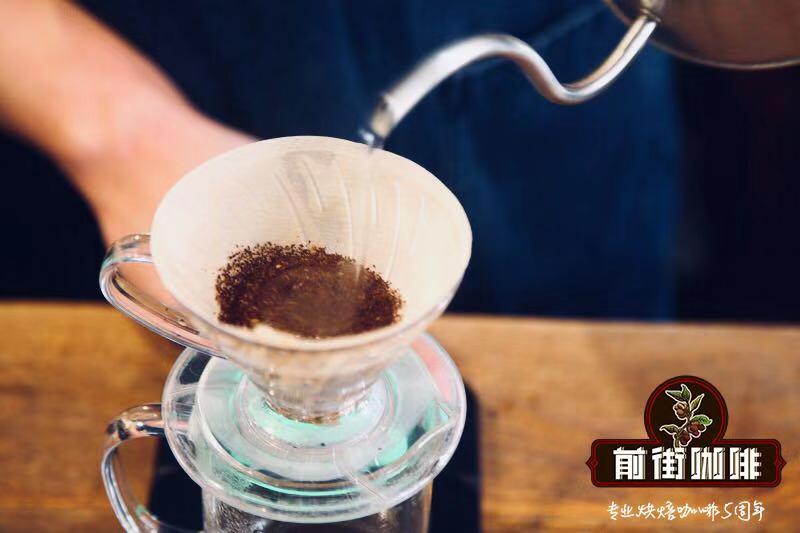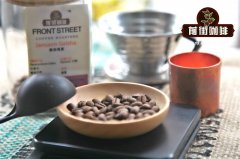What are the characteristics of Brazilian coffee beans? is Brazilian coffee expensive?

Professional coffee knowledge exchange More coffee bean information Please pay attention to coffee workshop (Weixin Official Accounts cafe_style)
Brazil is a rich and beautiful land, Brazil is also the world's largest coffee producer, known as the "coffee country" said. Coffee grown in Brazil ranges from the old Arabica coffee to the young Roberto coffee.
Brazil in terms of natural conditions, in the tropical region, the northern part of the tropical rain forest climate, hot and humid all year round, suitable for the growth of tropical crops, coffee trees for sunny crops, sufficient sunlight for its growth conditions. Historically, Brazil has been a Portugal colony for a long time. In order to meet the needs of Western Europe, Brazil has been planting single crops for a long time and developing tropical plantation economy. Therefore, coffee in Brazil has been its pillar industry for a long time. From the market point of view, coffee and its processed products are rich in caffeine and have an exciting effect. They play an important role in the working group dominated by mental workers, so they play a huge role in modern society, so the market is broad. Brazil ranks first in coffee production in the world.
1
Brazilian coffee types
Although coffee is diverse, Brazilian coffee is suitable for the taste of the masses.
Coffee produced in northern coastal areas has a typical iodine taste, reminiscent of the sea after drinking. This coffee is exported to North America, the Middle East and Eastern Europe.
Another coffee that is fun and worth pursuing is rinsed Bahia. This coffee is not easy to find, because Brazil is the world's largest coffee consumer after the United States, and many of the best coffees can only be found in its domestic market.
In Brazil, the largest crop is Robett coffee. This coffee is sold in supermarkets. Brazilian Roscoff coffee, sold under the name Conillon, accounts for 15 percent of total production.
Old bourbon coffee is grown on some estates in the Cerrado district of Minas Gerais in southeastern Brazil. These estates, such as Capin Branco and Vista Allegre, grow bourbon old-breed coffee that is also sold in the market. Although they come from the same region, these coffees have their own characteristics. The coffee is mild and smooth in taste, low in acidity, moderate in body and slightly sweet in taste. All these soft flavors blend together, and it's a test of taste to distinguish them one by one, which is why many Bourbon Santos fans love this coffee. Because they are so gentle and plain, Bourbon Santos is suitable for ordinary roasting, suitable for brewing in the maximum way, and is the best ingredient for making espresso and all kinds of fancy coffee.
Brazilian Coffee: Named after Country of Production
Coffee from Brazil (South American country). Brazilian coffee has a wide variety of varieties and is subdivided according to the name of the state of origin and the port of transportation.
For example, the largest coffee production is Roberts (known in the market as Conilon coffee), accounting for 15% of the total Brazilian coffee production, along with Bourbon coffee, Capin Blanco coffee, Vista Allegra coffee, Bahia coffee and so on.
Brazil is the world's largest coffee producer, and its coffee is popular, mainly exported to North America, the Middle East and Eastern Europe, but premium varieties like Bahia coffee are sold only domestically, as Brazil is also the world's second-largest coffee consumer.
END
Important Notice :
前街咖啡 FrontStreet Coffee has moved to new addredd:
FrontStreet Coffee Address: 315,Donghua East Road,GuangZhou
Tel:020 38364473
- Prev

Why is the price of Rosa coffee beans so expensive? introduction to the varieties and characteristics of Rosa geisha Coffee
Professional coffee knowledge exchange more coffee bean information please follow the coffee workshop (Wechat official account cafe_style) full-bodied and charming flower and fruit aroma, bright and charming fruit acid, long stay in the mouth and tongue rhyme this is the new king of boutique coffee, the upstart rosy summer that is popular all over the coffee circle. In a lot of coffee
- Next

What is a good Brazilian coffee bean?
Professional coffee knowledge exchange More coffee bean information Please pay attention to coffee workshop (Weixin Official Accounts cafe_style) Brazil's enthusiastic coffee giant Brazil produces about a third of the world's coffee, and coffee is produced in 17 of Brazil's 21 continents. This time we are mainly talking about sirado coffee. It is located in the southern state of Minas Gerais.
Related
- Beginners will see the "Coffee pull flower" guide!
- What is the difference between ice blog purified milk and ordinary milk coffee?
- Why is the Philippines the largest producer of crops in Liberia?
- For coffee extraction, should the fine powder be retained?
- How does extracted espresso fill pressed powder? How much strength does it take to press the powder?
- How to make jasmine cold extract coffee? Is the jasmine + latte good?
- Will this little toy really make the coffee taste better? How does Lily Drip affect coffee extraction?
- Will the action of slapping the filter cup also affect coffee extraction?
- What's the difference between powder-to-water ratio and powder-to-liquid ratio?
- What is the Ethiopian local species? What does it have to do with Heirloom native species?

